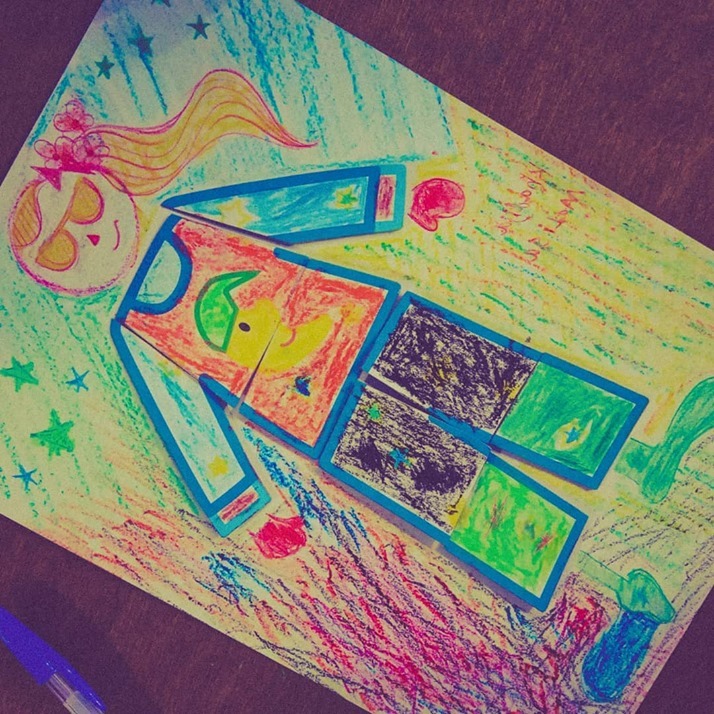
 We discussed about the Anemos Ananeosis /Wind of Renewal, the WELCOMMON HOSTEL, our hostel with social and green impact as well as about the Celeste Foundation. We had a very interesting and inspiring exchange of experience and good practices between the two organisations
We discussed about the Anemos Ananeosis /Wind of Renewal, the WELCOMMON HOSTEL, our hostel with social and green impact as well as about the Celeste Foundation. We had a very interesting and inspiring exchange of experience and good practices between the two organisations


The key values of the Celeste Foundation are: people, quality, innovation and work. “Man, his needs and problems are our starting point in everything we do. Our leitmotif is quality. We prioritize quality over quantity. We reach for innovative solutions to difficult problems. We boldly cross existing borders to effectively break down social barriers. We believe in the value of work. We want the labor market to be friendly to everyone. We work hard to achieve the set goals“.
The statutory goals of the Celeste Foundation include: conducting comprehensive activities in the field of helping the disabled, elderly, sick and other socially excluded people and their relatives, social and professional activation and charity activities; promoting the social enterprise model; improving the education system, promoting education; arousing in children and young people a lasting interest in science and the fight against discrimination.
The Celeste Foundation conducts many social activities and implements innovations aimed at effectively solving difficult social problems. It directly helps sick and disabled people, the elderly and other socially excluded people and their relatives. It implements social projects aimed at activating people with disabilities, facilitating their return to the labor market. The Celeste Foundation offers jobs for people with disabilities, especially those with mental illness, it creates workplaces adapted to the individual needs of people with disabilities. It supports other organizations that help sick and disabled people and social enterprises.
The Celeste foundation is a partner of the TRANSFER project which goal is to improve the quality of activities in the field of mental health by testing the Community Model of treatment and rehabilitation of people with mental disorders and diseases, assuming the improvement of the availability, scope and effectiveness of psychiatric services in the city districts of Łódź and Zgierz. The project is aimed at people: suffering from schizophrenia spectrum disorders and affective disorders, dementia disorders, addicted to alcohol and other substances that change consciousness, in accordance with current demographic, epidemiological and social trends.
As part of the TRANSFER project, the Celeste Foundation cooperates with the Leader in the organization and implementation of a training and internship program for people with mental illnesses and disorders at the Center for Professional Activation – Powidok restaurant in Łódź.
Professional activation is one of the key elements of the return of mentally ill people to an independent and satisfying life in society.
In the Center for Vocational Activation Powidok, project participants gain knowledge and experience as kitchen assistants in a prestigious restaurant located in the heart of Łódź.
With the support of carers, a psychologist and other project staff – at the end of the training and internship program at the Center for Vocational Activation Powidok – participants set off to the open labor market with new competences and motivation to take up independent employment.
The Celeste Foundation tries to support environmentally friendly solutions. “In the restaurant, attention is paid to reducing the consumption of plastic (e.g. by limiting disposable packaging, reusing items whenever possible). We also introduce responsible, selective waste segregation. In addition, he educates his charges in the field of pro-ecological solutions. A large part of the foundation’s activity is convincing the public to healthy eating. We believe that what we eat affects our health and mental condition. In addition, it reduces the consumption of meat and sugar, which is positive for the climate. More plant foods means more vegetables, fruits, grains and nuts, and less animal products. We want to pay a lot of attention to buying food from local producers and without packaging, and if this is not possible, at least in large collective packaging, preferably glass. In our various current and planned activities, we try to implement ecological solutions – change the lighting to LED bulbs to reduce electricity consumption. We make sure that our water systems are tight and we reduce water consumption”.
As part of its activities, the Celeste Foundation also provides free legal assistance. This is a task commissioned from the government administration (Ministry of Justice). Advice is provided by attorneys and legal advisors.
Free legal aid and free civil counseling are available to all persons who are unable to bear the costs of paid legal aid (by submitting an appropriate declaration).
“Authorized persons will receive legal assistance in every area of law, except for matters related to running a business. At free civil counseling points, those interested will receive support in solving the problem on their own. They will be informed about their rights or obligations (civic advice includes, in particular, advice for indebted persons and advice in the field of housing and social security).
Each time, we try to approach the presented problem individually and explain the essence of the problem in a reliable way. Advice is provided by experienced legal advisors and attorneys who participate in legal advice, free legal advice points run under the Act on Free Legal Aid, Free Citizenship Advice and Legal Education since 2016, and therefore guarantee the highest quality and have extensive experience in implementing these tasks“.
Ukraine – exchange of experiences
The project “Support for Ukraine” aims to provide assistance to Ukrainian citizens with disabilities and their accompanying persons who came to the territory of the Republic of Poland in connection with military operations conducted in Ukraine. For the participants of the project there are the following activities:
- place of accommodation
- meals
- support of a social worker
- taking care of a psychologist,
- providing transport for the disabled,
- help of housing security assistants, social rehabilitation animator,
- ensuring the learning of the Polish language
- support of a Ukrainian language translator
The project for supporting Ukrainian refugees is addressed to a group of persons who decide to temporarily stay in Zgierz during the implementation of a public task. The “Celeste” Foundation has 16 places in the center. Architectural barriers have been removed in the building (wheelchair access, elevator), and the living quarters (rooms, bathroom, kitchen, washing room and drying clothes) are also adapted to the limitations of people with physical disabilities. The rooms are equipped with rehabilitation beds, wardrobes, tables with chairs, TV sets. The kitchen has a gas hob, fridge, dishwasher, microwave oven. There is also a washing machine available for residents. it is fully equipped with small appliances for everyday use.
Sources of funding for the Foundation’s activities
- Projects financed by the European Union
- Income from own operations, e.g. restaurants
- Income from conducting pro-health training and workshops for external clients
- Projects financed by the State Fund for Rehabilitation of Disabled People
- Co-financing for the creation of jobs for people with disabilities (also from the Disabled People’s Rehabilitation Fund)
- Earmarked funds related to helping Ukraine in connection with the war and refugees

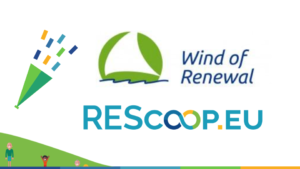
The social cooperative Anemos Ananeosis / WIND OF RENEWAL was founded in Athens in 2014, born out of a desire to help in social and green innovation and transition of Greece, promote social and green innovation and economy, and sustainable tourism. Anemos Ananeosis/Wind of Renewal has a strong commitment to building a better world through social and green innovation and the cooperative business model. We want to influence the direction of our society to become more sustainable as well as ecologically and socially fair, to be part of the social change we want to see happen. This is why ANEMOS ANANEOSIS / WIND OF RENEWAL has received 11 international and European-level distinctions for innovation and contribution to the social economy, social innovation, social and green transition.
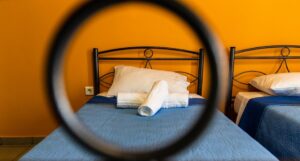 The WELCOMMON HOSTEL is a new, extraordinary, innovative and inclusive Hostel in Athens and also a social experimentation. We combine sustainable tourism with empowerment and social inclusion of vulnerable persons, green and social innovation, and intercultural dialogue. We welcome all kinds of different travelers (tourists, volunteers, erasmus, refugees, migrants, nomads, students) and aim to create communities of respect and acceptance. We provide safe accommodation, socializing, intercultural environment, social inclusion, environmental and climate awareness. We aim to make the hostel a zero emission and zero waste facility.
The WELCOMMON HOSTEL is a new, extraordinary, innovative and inclusive Hostel in Athens and also a social experimentation. We combine sustainable tourism with empowerment and social inclusion of vulnerable persons, green and social innovation, and intercultural dialogue. We welcome all kinds of different travelers (tourists, volunteers, erasmus, refugees, migrants, nomads, students) and aim to create communities of respect and acceptance. We provide safe accommodation, socializing, intercultural environment, social inclusion, environmental and climate awareness. We aim to make the hostel a zero emission and zero waste facility.
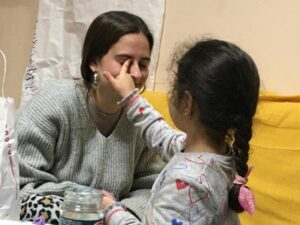
Social innovation in all our social activities and projects
- Empowerment through building communities
We have developed a community model for empowerment and inclusion through building communities (welcommon means welcome in common, together). We promote coexistence and dialogue between the cultures working with refugees, asylum seekers, tourists, European young volunteers from more than 50 nationalities and ethnicities in a more inclusive framework. The intercultural courses we offer are more inclusive. All the different travelers can participate in our courses (tourists, guests, volunteers, refugees, migrants, asylum seekers, Erasmus, students, nomads).
Our courses are more interactive, all the participants could be at the same time “teachers” and “students”, that means “we learn from each other”, it is not a passive, one way learning process. Learning from each other is an important and interesting part of our social project. As many people with different knowledge and skills come together, we try to benefit from each other. The residents of the Welcommon Hostel as well as the volunteers and the pupils participating in our intercultural courses can “teach” using their different skills, transfering knowledge, enhance their capacities and flourish themselves.
Our work is not only FOR refugees but also WITH refugees. We focus not only on help and support but also on mobilization and empowerment through doing and acting together. We use the human capital existed in our small and multicultural communities for: solving a problem, teaching, supporting alone dissable persons in move during their stay in our premises, stopping violence in family, protecting vulnerable persons.
We work for the empowerment, professional training and promotion of the abilities and qualifications of refugees, especially the young persons, in order to be able to find their way in our societies for the benefit of our society. We have offerd work places to young refugees.
We invite our guests/travelers, volunteers, personnel, refugees, migrants – pupils of our intercultural courses) to participate in climate actions. We connect our volunteers and guests with climate initiatives and we host some meetings and seminars in our hostel.
- Stay safe during COVID-19
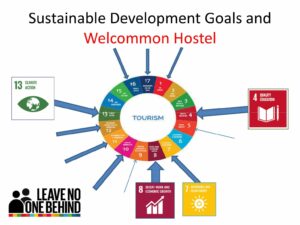 During COVID-19, we offered in Welcommon Hostel safe accommodation and empowerment courses to many homeless vulnerable refugees and asylum seekers and at the same time we hosted a big number of refugees and volunteers in Welcommon Hostel. Even during COVID-19 we continued on offering the lessons for the empowerment of the participants, in a safe environment, implementing the health regulations.
During COVID-19, we offered in Welcommon Hostel safe accommodation and empowerment courses to many homeless vulnerable refugees and asylum seekers and at the same time we hosted a big number of refugees and volunteers in Welcommon Hostel. Even during COVID-19 we continued on offering the lessons for the empowerment of the participants, in a safe environment, implementing the health regulations.
- Days of Welcommon – Volunteering
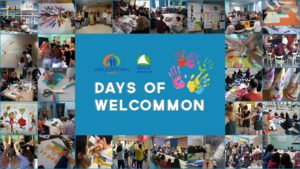 The vision of our volunteering project is to bring people together from all over the world (380 volunteers from 2016 until today), to enable them to communicate, by contributing with own social and green ideas, social and climate actions and experience, with the highlight of the positive impact that social economy enterprises have on communities, revitalizing neighborhoods, acting for the climate protection, making bridges between communities, social groups, newcomers and local people.
The vision of our volunteering project is to bring people together from all over the world (380 volunteers from 2016 until today), to enable them to communicate, by contributing with own social and green ideas, social and climate actions and experience, with the highlight of the positive impact that social economy enterprises have on communities, revitalizing neighborhoods, acting for the climate protection, making bridges between communities, social groups, newcomers and local people.
We offer free of cost and without any grant interactive, inclusive, intercultural, non formal education and courses (language lessons, art, environmental and climate awareness, music) and green and social economy workshops open for all. In our intercultural lessons from 9/2016 until today have participated more than 3000 refugees and 2000 other persons and 380 volunteers. The activity “Days of Welcommon” is our volunteering project offering Intercultural and inclusive courses and activities:
– free language and art classes /intercultural courses for refugees, tourists, volunteers and locals
– full schedule of inclusive cultural activities, music, art, comedy and film events
Combining social and green innovation, environmental awareness and respect to others.
Engaging and supporting any and all projects which align with our focus on social inclusion and climate action – from family picnics to seminars on the green economy and everything in between
Supporting young people to gain professional qualifications in energy reduction and transition.
- Αccessibility and Anemos Ananeosis/ Wind of Renewal
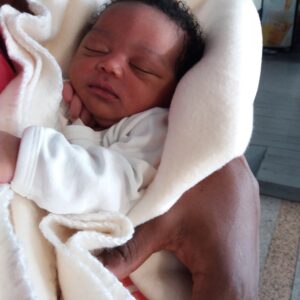 For Anemos Ananeosis / Wind of Renewal accessibility means equal access not only to a building or site but also to social, political, and economic life, it means not only physical access but also access to the same tools, services, organizations and facilities for all, disabled or/and other vulnerable people and non-disabled people.
For Anemos Ananeosis / Wind of Renewal accessibility means equal access not only to a building or site but also to social, political, and economic life, it means not only physical access but also access to the same tools, services, organizations and facilities for all, disabled or/and other vulnerable people and non-disabled people.
- Welcommon Hostel
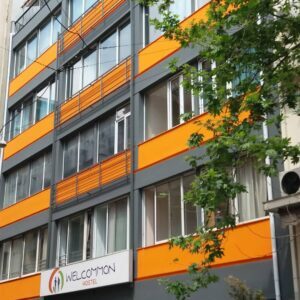 We try to adapt our offer, the hostel/the building as such and our activities and services, accessible to all people (whether they have a disability or not) without discrimination. The hostel is accessible to disable persons. There is also a special designed room for 3-4 disable persons. The elevators and the rooms for activities as well as our bar and places for intercultural events are all accessible. Our guests are different travelers, including disable persons, from all over the world. We are proud we have hosted between others many individuals and groups of disabled persons as well as activities for disabled persons (for example a group of 50 participants, for an international Erasmus Project, from 19/10-26/10/2019, hosted by IKKAIDO, an innovative European disability sports organisation) and of course many disable individuals as tourists, refugees and participants / students in our intercultural courses (language, painting, photography, music lessons).
We try to adapt our offer, the hostel/the building as such and our activities and services, accessible to all people (whether they have a disability or not) without discrimination. The hostel is accessible to disable persons. There is also a special designed room for 3-4 disable persons. The elevators and the rooms for activities as well as our bar and places for intercultural events are all accessible. Our guests are different travelers, including disable persons, from all over the world. We are proud we have hosted between others many individuals and groups of disabled persons as well as activities for disabled persons (for example a group of 50 participants, for an international Erasmus Project, from 19/10-26/10/2019, hosted by IKKAIDO, an innovative European disability sports organisation) and of course many disable individuals as tourists, refugees and participants / students in our intercultural courses (language, painting, photography, music lessons).
- Welcommon project
Welcommon was an innovative, model community center for accommodation and social inclusion of refugees in Athens (“empowerment through the creation of a community”), which combined decent and safe housing with social inclusion and job integration of a total of 600 refugees, the most vulnerable: people with disabilities, serious medical conditions, serious psychiatric disorders, victims of torture, rape, trafficking, pregnant women, families with newborns. It was a structure not only for refugees but with refugees for the benefit of the local community as well. When it closed in February 2018, after a suddenly stopping of the funding (80%), we decided to open the inclusive Welcommon Hostel and after a hard work on this plan, we were able to make the hostel ready for operation in July 2018, without any grant, donation or even bank loan, only based on loans by members and friends.
- SESYCARE project
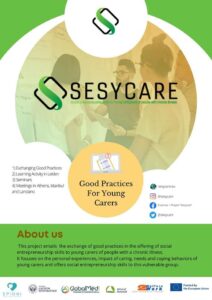 Anemos Ananeosis / Wind of Renewal is a partner of the SESYCARE project “Social Entrepreneurship Skills for Young CAREgivers of people with chronic Illness”. The project is coordinated by EPIONI- Greek Carers Network. The overall goal of the project is to summarize the knowledge about young carers’ lives focusing on their personal experiences, the impact of caring, needs and coping behaviors, and offer specific social entrepreneurship education and activities among this vulnerable population. It helped exchange ideas between the partners and good practices in the support of young caregivers who wish to develop their social entrepreneurial skills.
Anemos Ananeosis / Wind of Renewal is a partner of the SESYCARE project “Social Entrepreneurship Skills for Young CAREgivers of people with chronic Illness”. The project is coordinated by EPIONI- Greek Carers Network. The overall goal of the project is to summarize the knowledge about young carers’ lives focusing on their personal experiences, the impact of caring, needs and coping behaviors, and offer specific social entrepreneurship education and activities among this vulnerable population. It helped exchange ideas between the partners and good practices in the support of young caregivers who wish to develop their social entrepreneurial skills.
Easycare-Good-Practices-Guide:https://www.
- Social Economy
Anemos Ananeosis / Wind of Renewal was a founding member of the Social Economy Forum, an open platform of cooperation for the promotion of social entrepreneurship on the basis of agreed principles. The Forum provided a (digital) space for dialogue, information, and spread of good practices. It promoted collaboration and networking for the development of social and cooperative enterprises in Greece, as well as exchanging knowledge about financial tools and the sustainable operation for social and cooperative enterprises, green and energy transition, etc
Acting for environmental and climate protection – energytransition
Anemos Ananeosis / Wind of Renewal is committed to support the transition to an energy-efficient and green tourism and economy in general, in creating a new center for eco-friendly projects and practices; we also aim to contribute to reducing the energy poverty of households, offering them know-how and support so that they can exit a difficult situation through social empowerment and energy efficiency.
Welcommon Hostel is an example of a circular and green economy in tourism. A lot has been artistically designed with reused items, always with the comfort of the travelers in mind.
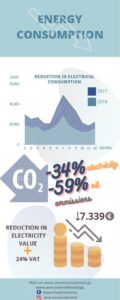
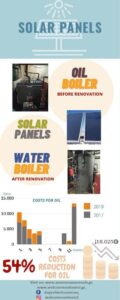 We have also installed on the roof of the Welcommon Hostel – without any grant – 20 solar panels for the production of hot water for shower and domestic use. The production of hot water is a major source of energy-consumption and economic duty of accommodation buildings and the ways of producing it most of the time is related to use of fossil fuels, a practice that is environmentally damaging. This is why, faithful to our purpose of creating a sustainable and environmentally fair society, we chose a renewable source of energy to adapt the need of hot water to a carbon-free practice.
We have also installed on the roof of the Welcommon Hostel – without any grant – 20 solar panels for the production of hot water for shower and domestic use. The production of hot water is a major source of energy-consumption and economic duty of accommodation buildings and the ways of producing it most of the time is related to use of fossil fuels, a practice that is environmentally damaging. This is why, faithful to our purpose of creating a sustainable and environmentally fair society, we chose a renewable source of energy to adapt the need of hot water to a carbon-free practice.
Another measure implemented in the hostel is the use of LED lighting lamps instead of 2400 high energy consuming lamps. For a 7-story building with more than 10 rooms/story, plus the corridors, staircases, storage rooms etc with lighting needs ended up to be a significant investment. However the result for this investment was also significant and it is well portrayed in the electric bills afterwards.
A flagship project of Anemos Ananeosis / Wind of Renewal is the Climate School Be.At, a 28-month project, aimed to augment the awareness of climate change and energy consumption in the school communities of the Municipality of Athens (MoA). 240 teachers were trained and 197 of them were supported with toolboxes and methodologies for the successful implementation of the project in 73 schools with the participation of 3500 pupils. The project was also a useful tool for intercultural education and inclusion of all the pupils, Greeks and the ones with migrant and refugee background, offering different roles and tasks to all of them based on their interest, skills and capacities, enhancing the community building approach.
ZEWklima purpose was to examine the promising approach of tackling the problem of youth unemployment in Greece and Spain through adequate qualification measures, which at the same time have a positive impact on the energy transition and climate protection effects.
EUKI-project “YESCLIMA – Young experts for climate-friendly schools in Mediterranean countries”. 11 young people from Greece and 11 from Spain, organized in three groups, participated in 6 months theoretical and practical education so they can work in the energy saving sector and natural heating and cooling techniques in buildings.
Wind of Renewal, INZEB and Heinrich Böll Stiftung Greece collaborated in order to deliver a policy paper on: “Energy Poverty in Greece: Social Green Innovation Proposals to Address the Phenomenon“. Two workshops were organised with the participation of many stakeholders aiming on a participatory drafting of the proposals. In this study, the factors comprising the multi-faceted problem of energy poverty were being introduced as well as its social, economic and environmental consequences. Policies and good examples for dealing with the phenomenon from various European countries are being presented as well as proposals to tackle the problem in Greece.
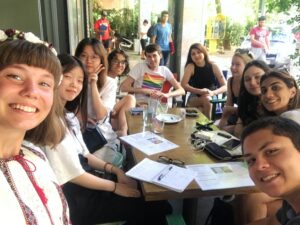 Anemos Ananeosis / Wind of Renewal has organised more than 60 conferences, events and seminars on green transition, climate protection, green deal. Under the concept “Discussing and taking the initiative for the green/circular and social economy and the innovation” we have organised a variety of workshops, public events and day workshops with the participation of universities, teachers, social – vocational institutions, social – economy enterprises, social media. The 2 days-seminar “Planning Transition to Energy Efficient Cities- Energy Efficiency on local level” was addressed to more than 250 elected, civil staff, managers and staff of municipalities especially from the departments of programming, energy-climate, urban planning and construction as well as representatives of civil society, unemployed and staff related businesses.
Anemos Ananeosis / Wind of Renewal has organised more than 60 conferences, events and seminars on green transition, climate protection, green deal. Under the concept “Discussing and taking the initiative for the green/circular and social economy and the innovation” we have organised a variety of workshops, public events and day workshops with the participation of universities, teachers, social – vocational institutions, social – economy enterprises, social media. The 2 days-seminar “Planning Transition to Energy Efficient Cities- Energy Efficiency on local level” was addressed to more than 250 elected, civil staff, managers and staff of municipalities especially from the departments of programming, energy-climate, urban planning and construction as well as representatives of civil society, unemployed and staff related businesses.
Anemos Ananeosis / Wind of Renewal is a member of the european federation of energy cooperatives www.rescoop.eu
Financing
- Our main income comes from the operation of the Welcommon Hostel. Our business model aims to be financial sustinable from sustainable tourism and have the resources not only for running the hostel but also to promote social and green projects. Although the impact of COVID-19 and the restrictions measures have a serious impact on us (reducing -80% of our income, almost zero tourists, restriction of in person activities, need for increased and costly health protection measures etc), we continued on offering social empowerment and non-formal education courses with the participation of refugees and volunteers.
- We have few grants and a number of small donations by individuals or small organisations
- We have started participating in a number of european projects (EUKI, Erasmus, etc)
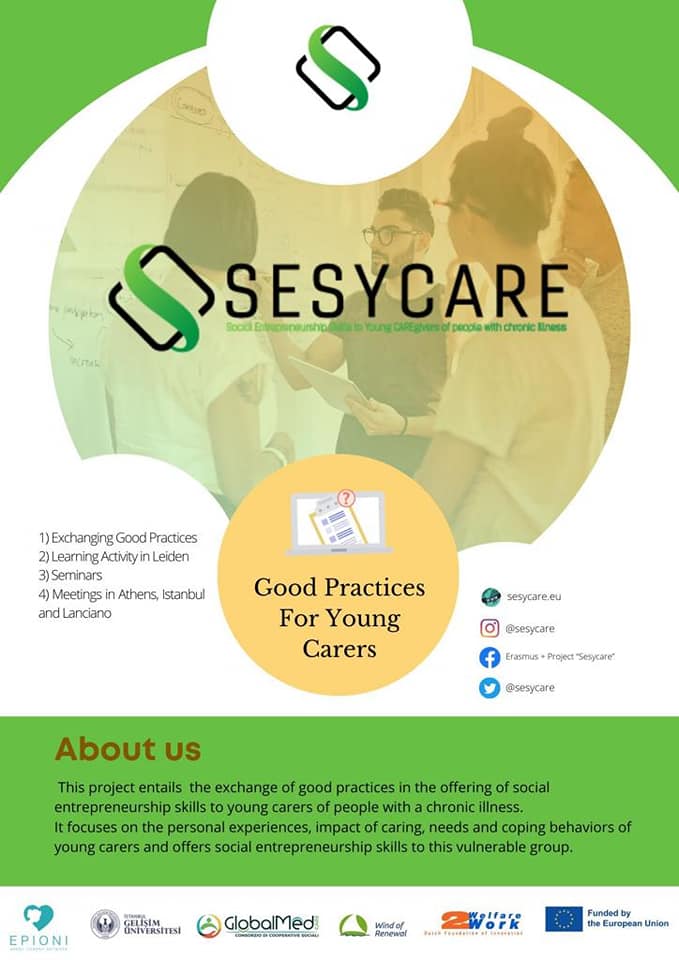
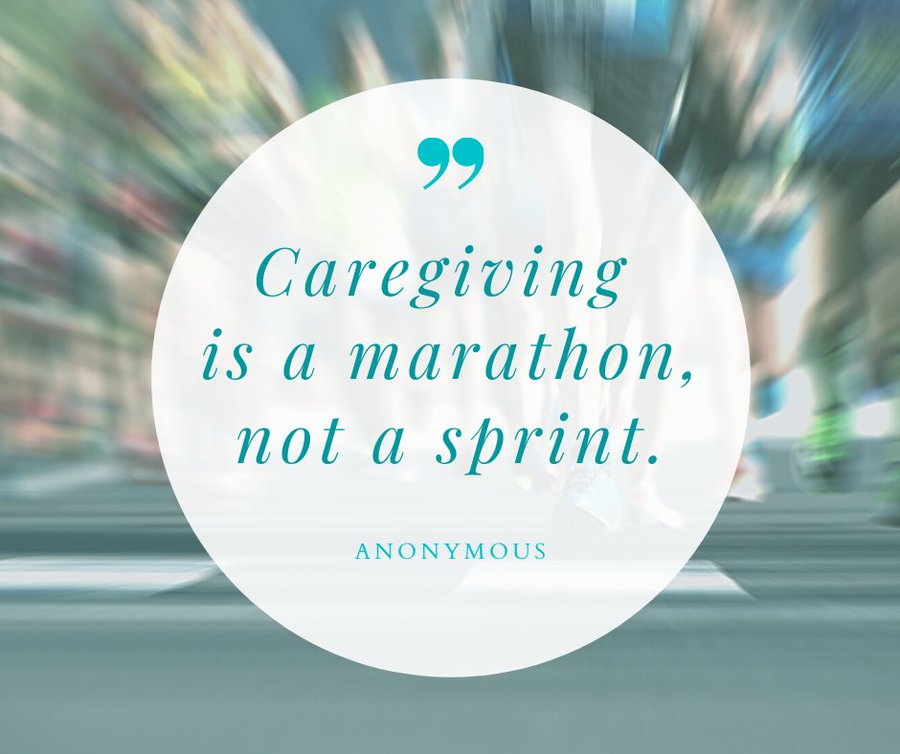
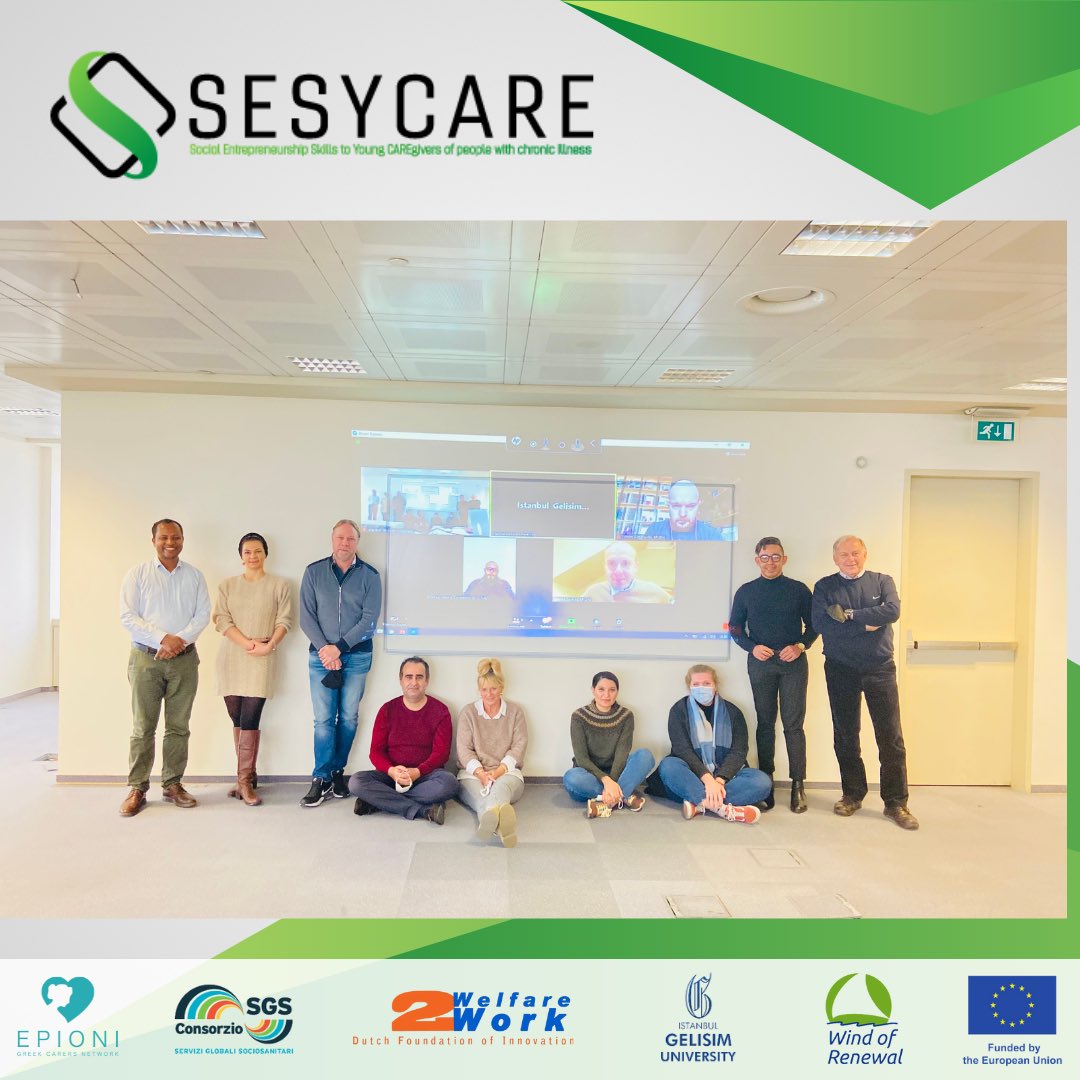 The meeting in Istanbul
The meeting in Istanbul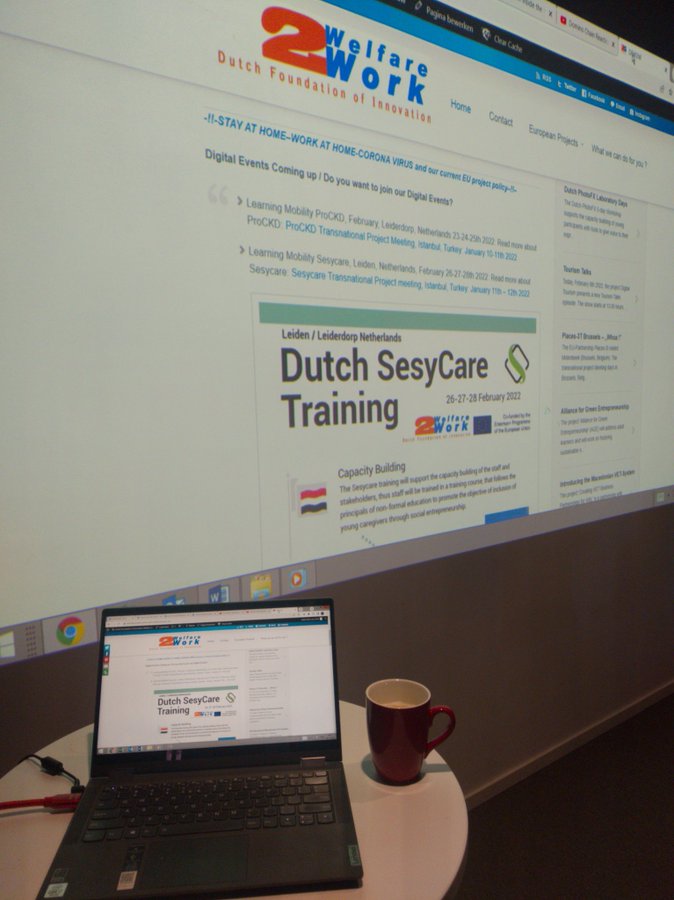
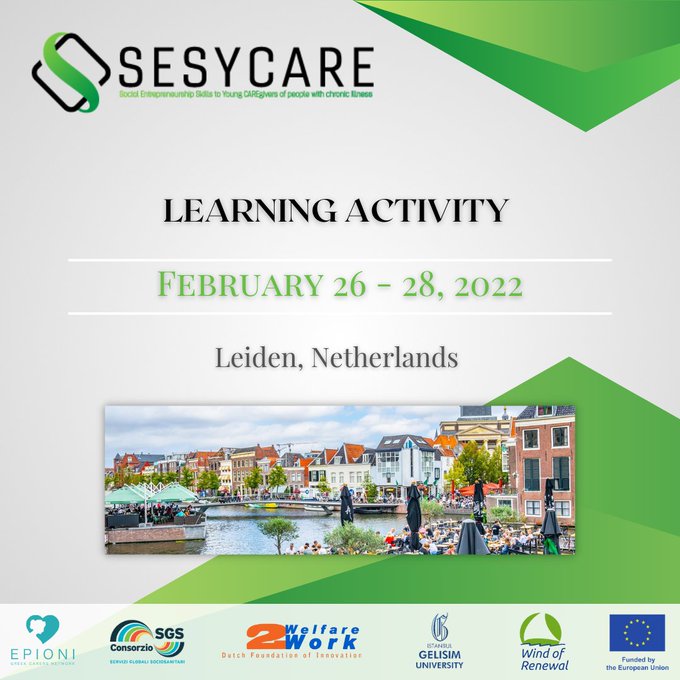
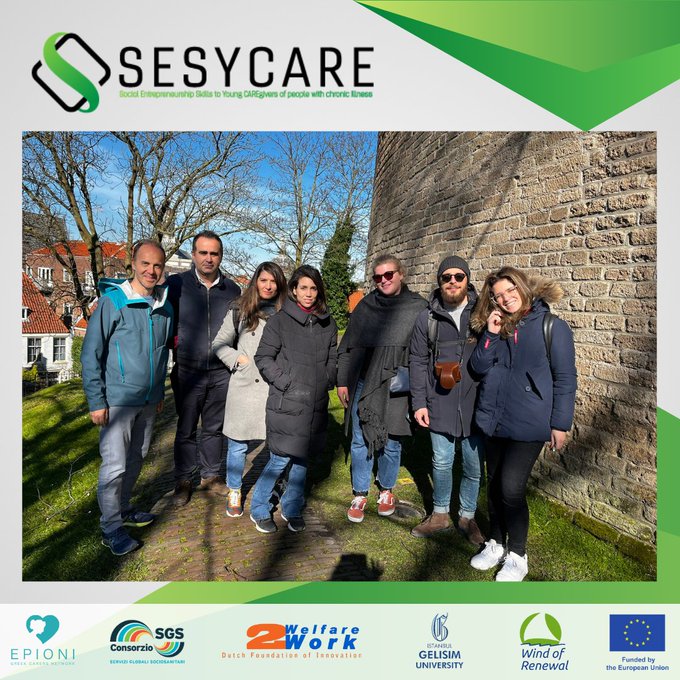
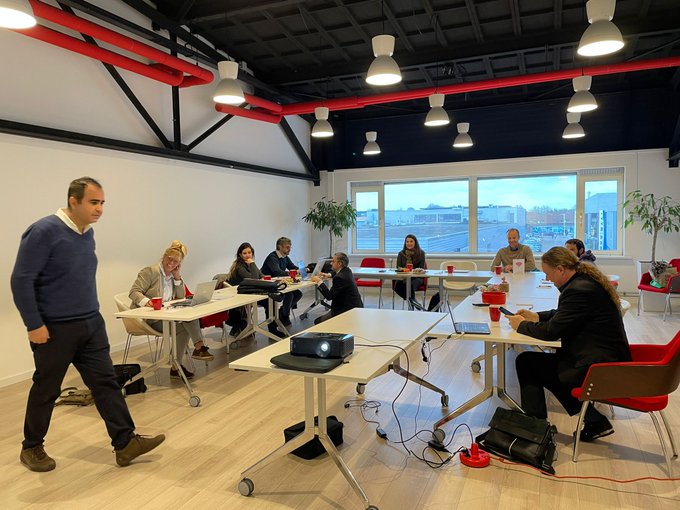
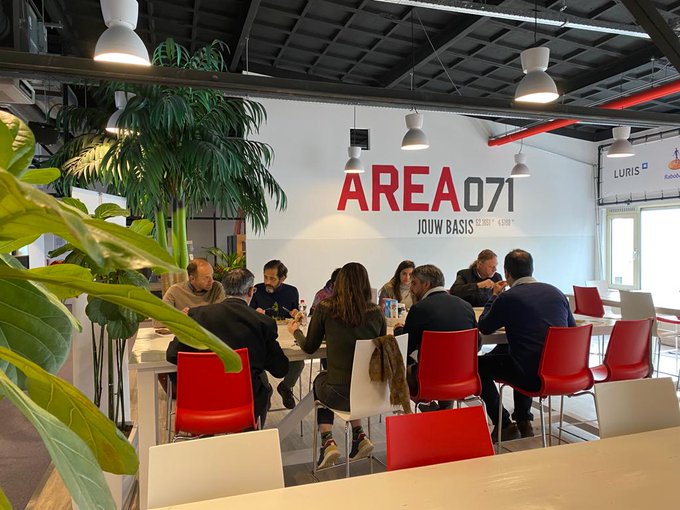
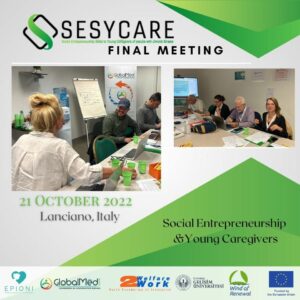 The meeting in Lanciano
The meeting in Lanciano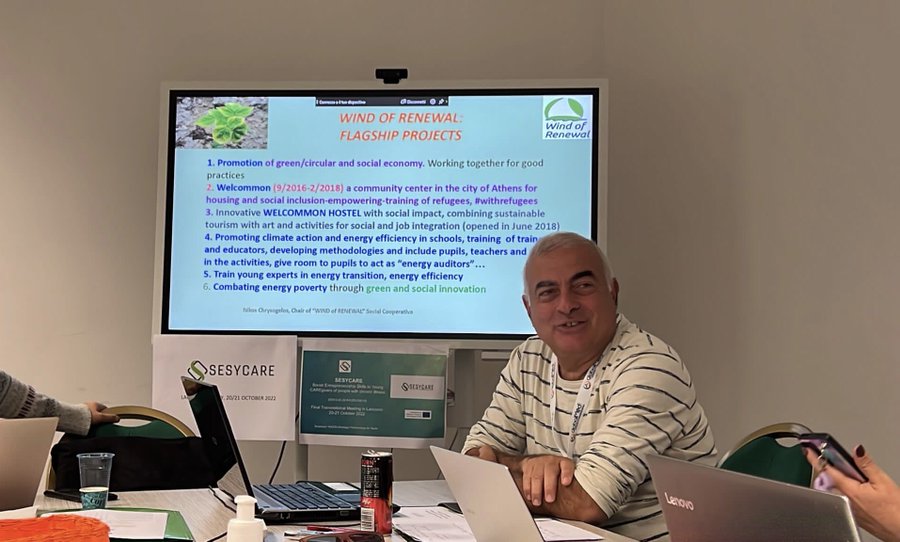 His family describes Lorenzo as a good student and a very sporty young man. His family, who learned that he had to be transferred to a private hospital in the USA for his treatment, started a public financial aid campaign to cover the $ 600,000 treatment cost. The appeals for financial aid were very successful and the locals were very responsive to Lorenzo’s case, and it took a few weeks for the sum to be collected. Unfortunately, Lorenzo succumbed to this illness. Later, a non-profit organization was created to transfer this financial aid, which was collected to help the families of young people who needed help and had health problems. Since then, this organization has offered support and comfort to those who have suffered an illness of their relatives, most of them children or a great loss. The organization offers completely free services, including group meetings with professional psychologists, nutritionists, yoga sessions and support for anyone suffering from loneliness.
His family describes Lorenzo as a good student and a very sporty young man. His family, who learned that he had to be transferred to a private hospital in the USA for his treatment, started a public financial aid campaign to cover the $ 600,000 treatment cost. The appeals for financial aid were very successful and the locals were very responsive to Lorenzo’s case, and it took a few weeks for the sum to be collected. Unfortunately, Lorenzo succumbed to this illness. Later, a non-profit organization was created to transfer this financial aid, which was collected to help the families of young people who needed help and had health problems. Since then, this organization has offered support and comfort to those who have suffered an illness of their relatives, most of them children or a great loss. The organization offers completely free services, including group meetings with professional psychologists, nutritionists, yoga sessions and support for anyone suffering from loneliness.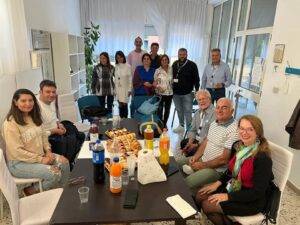 The organization also prepares special packages, baskets and products that can be sold on special occasions such as Christmas by contacting local producers in the region to provide the financial source to continue its activities.
The organization also prepares special packages, baskets and products that can be sold on special occasions such as Christmas by contacting local producers in the region to provide the financial source to continue its activities.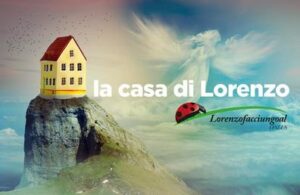 SESYCARE PROJECT
SESYCARE PROJECT



Recent Comments